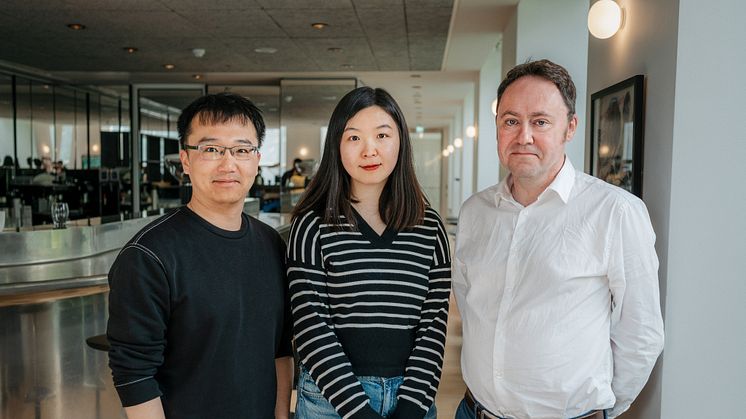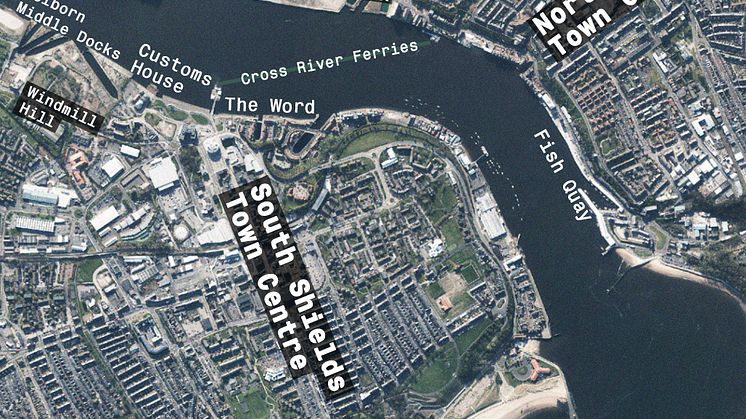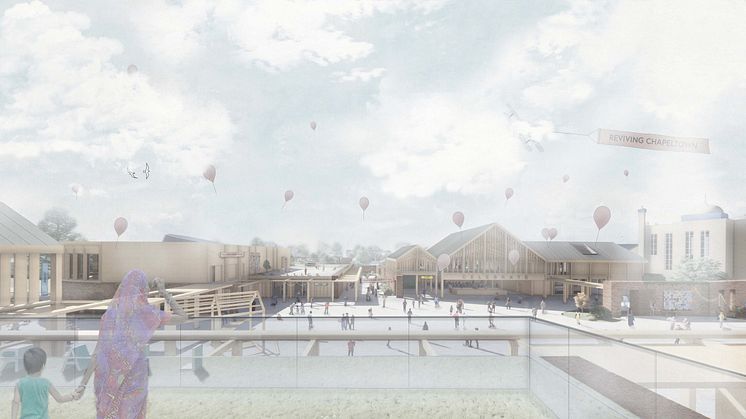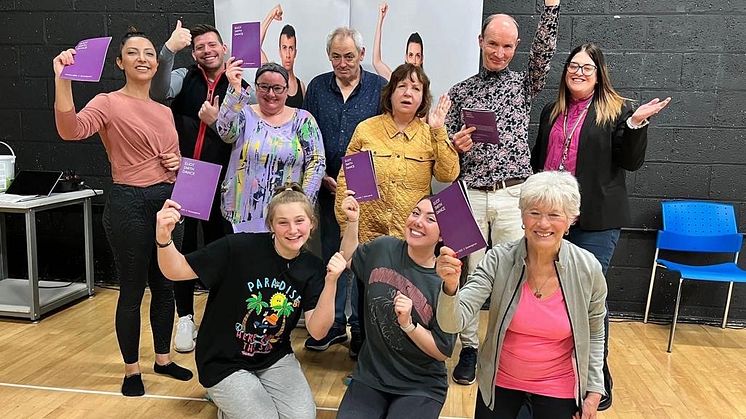
Press release -
Collaborating with coastal communities on regeneration is key
Researchers at Northumbria University have undertaken a project exploring sustainable planning with the coastal communities in North and South Tyneside. The team developed and championed methods to enable communities to co-design how urban redevelopment might best serve their neighbourhoods.
Part of the research focused on co-developing and implementing a smartphone app, with support from technology start-up, Omanos Analytics. The app is capable of capturing information, opinions and local knowledge directly from residents who find themselves at the centre of the environmental and social impacts of community redevelopment.
“The prosperity of waterfront communities and port cities, throughout history, has been closely tied to their ability to adapt to economic and technological change,” explained Dr Jiayi Jin, Assistant Professor of Architecture in Northumbria’s Department of Architecture and the Built Environment. Dr Jin is the Principal Investigator on the research project known as Participatory Neighbourhood Planning for the ‘Brown to Green’ Transition in Tyneside.
“The process of industrialisation along the River Tyne was subsequently followed by similarly intensive tendencies towards deindustrialisation in the first half of the 1990s, resulting in a significant abandonment of industrial sites and the emergence of a vast number of brownfields along the river. This project aims to utilise co-designed data-gathering technologies to provide people from local communities with options to participate in the planning and design of their neighbourhoods.”
Funding for the project was secured from the Design Exchange Partnerships (DEP) Coastal Communities 2023 programme, supported by the Arts and Humanities Research Council (AHRC) in partnership with the Future Observatory, the London Design Museum’s national research programme for the green transition.
Along with developing new methods of citizen participation in the planning process in the form of the app, the project was focused on several research objectives, including understanding the major environmental issues facing coastal towns; the reuse of brownfield land; the effects of climate change and flooding; and, supporting social inclusion to empower community involvement in the planning and change of local coastal neighbourhoods.
The app has been trialled by over 50 participants to date, as part of the research which looks at devising a participatory planning service that benefits the people, the river, and the region. The project has also explored wider ideas of co-design with local stakeholders to identify interventions that can best satisfy future needs in the context of the “brown to green” transition – meaning the best way of restoring the landscape while mitigating the negative ecological impacts associated with previous industrial land use.
Dr Claire Rumsey, Technical Director at Omanos Analytics, said: “At Omanos, we are driven to support community and environmental sustainability during critical infrastructure projects across the globe. A key part of this is the collection of community insights from the outset to ensure that lived experiences and needs are factored into decision making throughout the planning and development process.
This project is a fantastic example of how good practice should be targeted and implemented in any modern development project. We are extremely excited to have collaborated with Northumbria University to devise solutions for the delivery of community-led planning insights in the North East.”

Around 10 former industrial sites which have either been identified as suitable for redevelopment or are undergoing redevelopment, along the River Tyne in North and South Shields, were considered by research participants using the app. These include Holborn Middle Dock and Windmill Hill in South Shields, where proposals included mixed-use residential and office developments with the creation of a new promenade to the riverside area. Plans for the regeneration of the town centre in North Shields included developing a distinctive route to the Fish Quay, pedestrianisation of key streets, consolidation of retail units, creation of a town square, and the establishment of a transport hub.
Meanwhile, workshops held with local councils in the region, the AHRC Future Observatory Forum, and local Royal Institute of British Architects (RIBA) Youth Architectural Practitioner’s Forum events, served as platforms for discussion on the challenges of designing the future of brownfield sites.
Initial findings from the project were presented and discussed with fellow research teams during a Future Observatory workshop, hosted at the Design Museum in London.
Richard Laing, Professor of Urban Collaboration at Northumbria, said: “The evidence is clear from this research that regenerating neighbourhoods and promoting environmental actions require tailored interventions that align with the needs and capabilities of the local population. Factors such as affordability, safety perceptions and cultural backgrounds must be considered as part of the project. Therefore, it is important to encourage and support high-quality and frequent local engagement.”
Dr Jin added: “The participatory app has significantly lowered the barriers to participation. It allows citizens to express their opinions, views, and concerns at their convenience, eliminating the need for physical presence at a specific location and time. However, we noticed difficulty in prompting participants to explain the "why" behind their input after detailing the "what", so we know the app can be developed further to encourage personal reflections which can enrich the democratic process.”
“This project serves as a testament to a collaborative, inclusive methodology in coastal town planning, merging local insight with innovative methodologies to propel sustainable urban renewal.”
Visit the project website here to discover more about the Participatory Neighbourhood Planning for the ‘Brown to Green’ Transition in Tyneside research. You can also read more about Dr Jin’s research on sustainable development and participation in planning processes, in an article published by The Conversation.
ENDS
Picture captions
Image 1 – The project team, Research Assistant Mingyu Zhu, Dr Jiayi Jin and Professor Richard Laing are pictured while attending the Future Observatory workshop and presenting their research at the Design Museum, London.
Image 2 – A map crafted by the AHRC 'Brown to Green' project team utilising Google Maps as a reference.
Topics
Categories
UNIVERSITY OF THE YEAR 2022 (Times Higher Education Awards)
Northumbria is a research-intensive university that unlocks potential for all, changing lives regionally, nationally and internationally.
Two thirds of Northumbria's undergraduate students come from the North East region and go into employment in the region when they graduate, demonstrating Northumbria's significant contribution to social mobility and levelling up in the North East of England.
Find out more about us at www.northumbria.ac.uk
--- Please contact media.communications@northumbria.ac.uk with any media enquiries or interview requests ---












